|
Presentation Abstracts
|
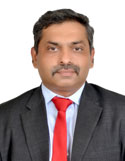 |
Mr. Anil Chaudhary
CEO , Operon strategist, PuneThe
manufacturing facilities plays the important role in
regulatory approvals and compliances, failing which
manufacturing facility may be rejected for
approvals. The major aspects of the facility includes
the Man and material movements, Equipment and
utilities selections and their validations. Careful
and studied approach for the facility design may avoid
modifications and rejections of the facilities. |
|
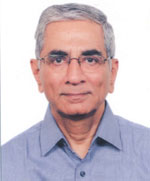 |
Dr. D.D.
Kale
Vice President, Society of Plastic Engineers
Processing and Reprocessing for Medical Plastic
Devices
Medical devices need special attention. The commodity
plastics like polyethylene and Polypropylene are used
also for manufacturing of medical devices. However,
the compounding and processing of base polymers
require some precautions. The additives are selected
carefully and so also finishing. The composition of
body fluids is not the
same throughout the body. The implants have different
requirements and standards depending upon the time
necessary for the implants. Some of the devices are
made from bio degradable polymers. The processing of
biopolymers is different. Some aspects of processing
and reprocessing are briefly discussed.
|
|
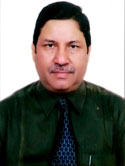 |
Dr. M.L.
Aggarwal
Dy. Director (HOD Bio Division), Shriram Institute For
Industrial ResearchQuality testing
of Polymer/Plastic material required for medical
applications
There are small number of
medical grade polymers available for medical
applications and an even smaller number is used for
implants. The choice of polymer depend on the extent
of contact with body fluid, internal and external
tissue. PVC PA, PE (LDPE, HDPE), PS, Epoxy resins used
for syringe, blood bags, glucose drips. Silicon
rubber, natural rubber, PVC, PU, PP, Nylon,
Teflon used for catheters, feeding tubes, surgical
instruments. Nylon, PP, Polyester for cultures &
ligatures. PE, PET, PU, Silicon rubber are used for
implants, drug delivery devices. To ensure the
quality, testing of these polymers are to be
undertaken for the chemical, mechanical, thermal &
biocompatibility evaluation.
In SRI we perform the
complete testing of these parameters as per USP
chapter 661, 661.1, 161, 87, 88 & ISO 10993-1. A brief
description of these parameters are Identification of
Polymer by IR and DSC. Physico chemical parameters
like Absorbance, Acidity/Alkalinity, non-volatile
residue and TOC. Extractable like Phenolic
antioxidants, non-phenolic antioxidants, amides,
stearic acid & plastic additives etc. Extractable
metals like Al, As, Ba, Cd, Co, Hg, Mn, Ni, Pb, Ti, V
& Zn etc. Functionality/Mechanical tests like spectral
transmission, tensile strength, MVTR. Biological
reactivity in –vitro Cytotoxicity, Biological
reactivity in-vivo, Systematic injection test in mice,
intracutaneous reactivity test in Rabbits &
Implantation test in Rats/Rabbits. |
|
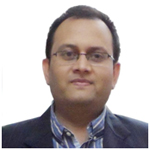 |
Dr. Ketan
Vadodaria
Head, Med. Textiles, Centre of Excellence for Medical
Textiles – SITRA, Coimbatore
Non-Woven Medical Textiles – Opportunities And
Challenges
In healthcare, nonwovens
are utilized largely in products that are designed to
provide barriers (e.g., barriers between patients and
themselves, barriers between the patient and the
physician/caregiver and barriers between healthcare
workers). The Asia pacific
medical nonwoven market is estimated to reach 3,374.9
million by 2020, registering a CAGR of 12.1% from 2015
to 2020. In India, only 12 percent of technical
textiles products are manufactured by nonwoven
technology as compared to 24 per cent of global
consumption. The polymer and raw material required for
that is now indigenously produced. The presentation is
focused on details of non-woven medical textiles
industry in India including raw materials, range of
products, their manufacturing and end use. |
|
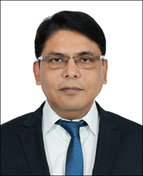 |
Dr. Nishodh
Saxena
Founder & Managing Director, Pharma Knowledge Centre (PKC),
AhmedabadCareer Counseling for
Life Science Skills - Building New India - "Sankalp Se
Siddhi”
"A degree alone does not
make a man educated”. It is the character of a man,
who can change this world. Education must be rooted in
firm Principles, Practical Knowledge and nurtured on
Right Values.
Well identified gap
between Academia and Industry is not the knowledge
rather a skill set that is required to transform the
academic knowledge in to Industrial application. Our
“Young Indian Youths” are performing excellently
globally provided they have acquired specialized
skills apart from academic degrees by making extra
efforts for real time
Learning and Development at an adequate Training and
Development institution outside the conventional
academic hubs.
No longer is a degree in
Life Sciences, Chemical Sciences, Pharmacy and Medical
Sciences considered only academic. These area of
studies are the new hot area for career building, As
Clinical Research, Ayurveda clinics proliferate,
cosmetic procedures and transplant surgeries become
mainstream and medical coding opens up opportunities,
the demand for life science graduates has increased
manifold.
We are becoming more
rational using any product of day to day, our judgment
is relying on scientific and clinically proven
products and creating vacancies for people with
science degrees.
With the leverages of
Government of India in the Medical Devices sector,
Make in India mission, Restructuring of Banking and
Insurance Sector and Ayushman Bharat, the
opportunities for Biomedical Technologists and Life
Science students are on the top demand.
Medical coding is another
avenue for this section of students. While the
healthcare market in the US is maturing, companies in
India are hiring Life science graduates and the
requirement is not just in a newage professional set
up, specialty hospitals need biomedical experts who
can proof-read codes, "If you choose to work for a
third-party administrator or an insurance company that
reviews claims, medical knowledge is mandatory. Only
then can you review the doctor's treatment, spot
frauds, note if the drugs are relevant to the
concerned surgery or being used to inflate the bill,”
The growing industry for
virtual scribes, who support doctors in the US is also
contributing the boost in science becoming a lucrative
option. With Donald Trump's healthcare measures, the
US doctors are now legally required to document and
record every minute of their consultation and
treatment process. "Virtual scribes have stepped in to
take the heat of overworked doctors and Life sciences'
students are the best hands. More than 50% of the
hires are science students as they only have to be
specialized skilled as they are aware of the medical
terminology and jargon. Closer home, it's the Ayurveda
hospitals that need people for documentation and
prefer those with medical knowledge.
While startups in the
online drug delivery space are hiring students for who
can understand the drug market, recognize prescription
drugs, place orders and stockpile based on demand,
those with specializations are finding a place in
niche areas like sports consultancy. "There is a
demand for people who have an understanding of
exercise medicine, physiotherapy, diets and
muscular-skeleton issues. And life science students
are a good fit for these areas," with adequate skills. |
|
|
|
